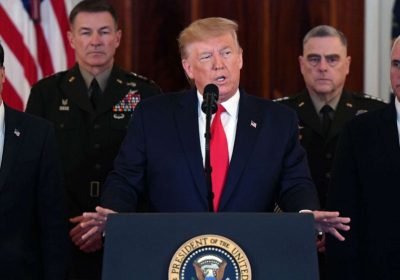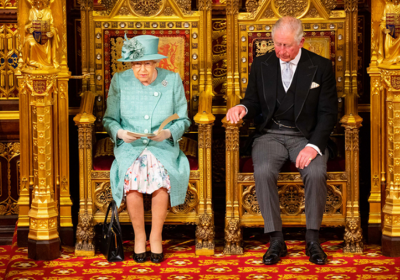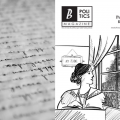Now I shall not go into a long argument upon this question, for the reason that a year ago I said what I thought it necessary to say upon it, and because I believe the question is in the hand, not of my hon. Friend, nor in that of Lord Palmerston, nor in that even of President Lincoln, but it is in the hand of the Supreme Ruler, who is bringing about one of those great transactions in history which men often will not regard when they are passing before them, but which they look back upon with awe and astonishment some years after they are past. So I shall content myself with asking one or two questions. I shall not discuss the question whether the North is making war for the Constitution, or making war for the abolition of slavery.
If you come to a matter of sympathy with the South, or recognition of the South, or mediation or intervention for the benefit of the South, you should consider what are the ends of the South. Surely the United States’ Government is a Government at amity with this country. Its Minister is in London—a man honourable by family, as you know, in America, his father and his grandfather having held the office of President of the Republic. You have your own Minister just returned to Washington. Is this hypocrisy? Are you, because you can cavil at certain things which the North, the United States’ Government, has done or has not done, are you eagerly to throw the influence of your opinion into a movement which is to dismember the great Republic?
Is there a man here that doubts for a moment that the object of the war on the part of the South—they began the war—that the object of the war on the part of the South is to maintain in bondage four millions of human beings? That is only a small part of it. The further object is to perpetuate for ever the bondage of all the posterity of those four millions of slaves. [A few cries of “No! No!â€] You will hear that I am not in a condition to contest vigorously anything that may be opposed, for I am suffering, as nearly everybody is, from the state of the weather, and a hoarseness that almost hinders me from speaking. I could quote their own documents till midnight in proof of what I say; and if I found a man who denied it, upon the evidence that had been offered, I would not offend him, or trouble myself by trying further to convince him.
The object is, that a handful of white men on that continent shall lord it over many millions of blacks, made black by the very Hand that made us white. The object is, that they should have the power to breed negroes, to work negroes, to lash negroes, to chain negroes, to buy and sell negroes, to deny them the commonest ties of family, or to break their hearts by rending them at their pleasure, to close their mental eye to but a glimpse even of that knowledge which separates us from the brute—for in their laws it is criminal and penal to teach the negro to read—to seal from their hearts the Book of our religion, and to make chattels and things of men and women and children.
Now I want to ask whether this is to be the foundation, as it is proposed, of a new slave empire, and whether it is intended that on this audacious and infernal basis England’s new ally is to be built up.
∗ ∗ ∗ ∗ ∗
Now I should have no kind of objection to recognize a country because it was a country that held slaves—to recognize the United States, or to be in amity with it. The question of slavery there, and in Cuba and in Brazil, is, as far as respects the present generation, an accident, and it would be unreasonable that we should object to trade with and have political relations with a country, merely because it happened to have within its borders the institution of slavery, hateful as that institution is. But in this case it is a new State intending to set itself up on the sole basis of slavery. Slavery is blasphemously declared to be its chief corner-stone.
I have heard that there are, in this country, Ministers of State who are in favour of the South; that there are members of the aristocracy who are terrified at the shadow of the Great Republic; that there are rich men on our commercial exchanges, depraved, it may be, by their riches, and thriving unwholesomely within the atmosphere of a privileged class; that there are conductors of the public press who would barter the rights of millions of their fellow-creatures that they might bask in the smiles of the great.
But I know that there are Ministers of State who do not wish that this insurrection should break up the American nation; that there are members of our aristocracy who are not afraid of the shadow of the Republic; that there are rich men, many, who are not depraved by their riches; and that there are public writers of eminence and honour who will not barter human rights for the patronage of the great. But most of all, and before all, I believe,—I am sure it is true in Lancashire, where the working men have seen themselves coming down from prosperity to ruin, from independence to a subsistence on charity,—I say that I believe that the unenfranchised but not hopeless millions of this country will never sympathize with a revolt which is intended to destroy the liberty of a continent, and to build on its ruins a mighty fabric of human bondage.
When I speak to gentlemen in private upon this matter, and hear their own candid opinion,—I mean those who differ from me on this question,—they generally end by saying that the Republic is too great and too powerful, and that it is better for us—not by “us†meaning you, but the governing classes and the governing policy of England—that it should be broken up. But we will suppose that we are in New York or in Boston, discussing the policy and power of England. If any one there were to point to England,—not to the thirty-one millions of population in these islands, but to her one hundred and fifty millions in India, and nobody knows how many millions more in every other part of the globe,—might he not, whilst boasting that America has not covered the ocean with fleets of force, or left the bones of her citizens to blanch on a hundred European battle-fields,—might he not fairly say, that England is great and powerful, and that it is perilous for the world that she is so great?
But bear in mind that every declaration of this kind, whether from an Englishman who professes to be strictly English, or from an American strictly American, or from a Frenchman strictly French,—whether it asserts in arrogant strains that Britannia rules the waves, or speaks of “manifest destiny†and the supremacy of the “Stars and Stripes,†or boasts that the Eagles of one nation, having once overrun Europe, may possibly repeat the experiment,—I say all this is to be condemned. It is not truly patriotic; it is not rational; it is not moral. Then, I say, if any man wishes the Great Republic to be severed on that ground: in my opinion, he is doing that which tends to keep alive jealousies which, as far as he can prevent it, will never die; though if they do not die, wars must be eternal.
But then I shall be told that the people of the North do not like us at all. . . . It is not reasonable that they should like us. If an American be in this room to-night, will he feel that he likes my honourable Friend? But if the North does not like England, does anybody believe the South does? It does not appear to me to be a question of liking or disliking. Everybody knows that when the South was in power,—and it has been in power for the last fifty years,—everybody knows that hostility to this country, wherever it existed in America, was cherished and stimulated to the utmost degree by some of those very men who are now leaders of this very insurrection.
My hon. Friend read a passage about the Alabama. I undertake to say that he is not acquainted with the facts about the Alabama. That he will acknowledge, I think. The Government of this country have admitted that the building of the Alabama, and her sailing from the Mersey, was a violation of international law. In America they say, and they say here, that the Alabama is a ship of war; that she was built in the Mersey; that she was built, and I have reason to believe it, by a member of the British Parliament; that she is furnished with guns of English manufacture; that she is manned almost entirely by Englishmen; and that these facts were represented, as I know they were represented, to the collector of customs in Liverpool, who pooh-poohed them, and said there was nothing in them. He was requested to send the facts up to London to the Customs’ authorities, and their solicitor, not a very wise man, but probably in favour of breaking up the Republic, did not think them of much consequence; but afterwards the opinion of an eminent counsel, Mr. Collier, the Member for Plymouth, was taken, and he stated distinctly that what was being done in Liverpool was a direct infringement of the Foreign Enlistment Act, and that the Customs’ authorities of Liverpool would be responsible for anything that happened in consequence.
When this opinion was taken to the Foreign Office, the Foreign Office was a little astonished and a little troubled; and after they had consulted their own law officers, whose opinions agreed with that of Mr. Collier, they did what Government officers generally do, and as promptly,—a telegraphic message went down to Liverpool to order that this vessel should be seized, and she happened to sail an hour or two before the message arrived. She has never been into a Confederate port—they have not got any ports; she hoists the English flag when she wants to come alongside a ship; she sets a ship on fire in the night, and when, seeing fire, another ship bears down to lend help, she seizes it, and pillages and burns it. I think that, if we were citizens of New York, it would require a little more calmness than is shown in this country to look at all this as if it was a matter with which we had no concern. And therefore I do not so much blame the language that has been used in America in reference to the question of the Alabama.
But they do not know in America so much as we know—the whole truth about public opinion here. There are Ministers in our Cabinet as resolved to be no traitors to freedom, on this question, as I am; and there are members of the English aristocracy, and in the very highest rank, as I know for a certainty, who hold the same opinion. They do not know in America—at least, there has been no indication of it until the advices that have come to hand within the last two days—what is the opinion of the great body of the working classes in England. There has been every effort that money and malice could make to stimulate in Lancashire, amongst the suffering population, an expression of opinion in favour of the Slave States. They have not been able to get it. And I honour that population for their fidelity to principles and to freedom, and I say that the course they have taken ought to atone in the minds of the people of the United States for miles of leading articles, written by the London press,—by men who would barter every human right,—that they might serve the party with which they are associated.
But now I shall ask you one other question before I sit down,—How comes it that on the Continent there is not a liberal newspaper, nor a liberal politician, that has said, or has thought of saying, a word in favour of this portentous and monstrous shape which now asks to be received into the family of nations? Take the great Italian Minister, Count Cavour. You read some time ago in the papers part of a despatch which he wrote on the question of America—he had no difficulty in deciding. Ask Garibaldi. Is there in Europe a more disinterested and generous friend of freedom than Garibaldi? Ask that illustrious Hungarian, to whose marvellous eloquence you once listened in this hall. Will he tell you that slavery has nothing to do with it, and that the slaveholders of the South will liberate the negroes sooner than the North through the instrumentality of the war? Ask Victor Hugo, the poet of freedom,—the exponent, may I not call him, of the yearnings of all mankind for a better time? Ask any man in Europe who opens his lips for freedom,—who dips his pen in ink that he may indite a sentence for freedom—whoever has a sympathy for freedom warm in his own heart,—ask him,—he will have no difficulty in telling you on which side your sympathies should lie.
Only a few days ago a German merchant in Manchester was speaking to a friend of mine, and said he had recently travelled all though Germany. He said, “I am so surprised,—I don’t find one man in favour of the South.†That is not true of Germany only, it is true of all the world except this island, famed for freedom, in which we dwell. I will tell you what is the reason. Our London press is mainly in the hands of certain ruling West End classes; it acts and writes in favour of those classes. I will tell you what they mean. One of the most eminent statesmen in this country,—one who has rendered the greatest services to the country, though, I must say, not in an official capacity, in which men very seldom confer such great advantages upon the country,—he told me twice, at an interval of several months, “I had no idea how much influence the example of that Republic was having upon opinion here, until I discovered the universal congratulation that the Republic was likely to broken be up.â€
But, Sir, the Free States are the home of the working man. Now, I speak to working men particularly at this moment. Do you know that in fifteen years two million five hundred thousand persons, men, women, and children, have left the United Kingdom to find a home in the Free States of America? That is a population equal to eight great cities of the size of Birmingham. What would you think of eight Birminghams being transplanted from this country and set down in the United States? Speaking generally, every man of these two and a half millions is in a position of much higher comfort and prosperity than he would have been if he had remained in this country. I say it is the home of the working man; as one of her poets has recently said:
* “for her free latch-string never was drawn in
* Against the poorest child of Adam’s kin.â€
And in that land there are no six millions of grown men—I speak of the Free States—excluded from the constitution of their country and its electoral franchise; there, you will find a free Church, a free school, free land, a free vote, and a free career for the child of the humblest born in the land. My countrymen who work for your living, remember this: there will be one wild shriek of freedom to startle all mankind if that American Republic should be overthrown.
Now for one moment let us lift ourselves, if we can, above the narrow circle in which we are all too apt to live and think; let us put ourselves on an historical eminence, and judge this matter fairly. Slavery has been, as we all know, the huge, foul blot upon the fame of the American Republic; it is a hideous outrage against human right and against Divine law; but the pride, the passion of man, will not permit its peaceable extinction. The slave-owners of our colonies, if they had been strong enough, would have revolted too. I believe there was no mode short of a miracle more stupendous than any recorded in Holy Writ that could in our time, or in a century, or in any time, have brought about the abolition of slavery in America, but the suicide which the South has committed and the war which it has begun.
Sir, it is a measureless calamity,—this war. I said the Russian war was a measureless calamity, and yet many of your leaders and friends told you that it was a just war to maintain the integrity of Turkey, some thousands of miles off. Surely the integrity of your own country at your own doors must be worth as much as the integrity of Turkey. Is not this war the penalty which inexorable justice exacts from America, North and South, for the enormous guilt of cherishing that frightful iniquity of slavery for the last eighty years? I do not blame any man here who thinks the cause of the North hopeless and the restoration of the Union impossible. It may be hopeless; the restoration may be impossible. You have the authority of the Chancellor of the Exchequer on that point. The Chancellor of the Exchequer, as a speaker, is not surpassed by any man in England, and he is a great statesman; he believes the cause of the North to be hopeless; that their enterprise cannot succeed.
Well, he is quite welcome to that opinion, and so is anybody else. I do not hold the opinion; but the facts are before us all, and, as far as we can discard passion and sympathy, we are all equally at liberty to form our own opinion. But what I do blame is this. I blame men who are eager to admit into the family of nations a State which offers itself to us, based upon a principle, I will undertake to say, more odious and more blasphemous than was ever heretofore dreamed of in Christian or Pagan, in civilized or in savage times. The leaders of this revolt propose this monstrous thing—that over a territory forty times as large as England, the blight and curse of slavery shall be for ever perpetuated.
I cannot believe, for my part, that such a fate will befall that fair land, stricken though it now is with the ravages of war. I cannot believe that civilization, in its journey with the sun, will sink into endless night in order to gratify the ambition of the leaders of this revolt, who seek to
* “Wade through slaughter to a throne,
* And shut the gates of mercy on mankind.â€
I have another and a far brighter vision before my gaze. It may be but a vision, but I will cherish it. I see one vast confederation stretching from the frozen North in unbroken line to the glowing South, and from the wild billows of the Atlantic westward to the calmer waters of the Pacific main,—and I see one people, and one language, and one law, and one faith, and, over all that wide continent, the home of freedom, and a refuge for the oppressed of every race and of every clime.















